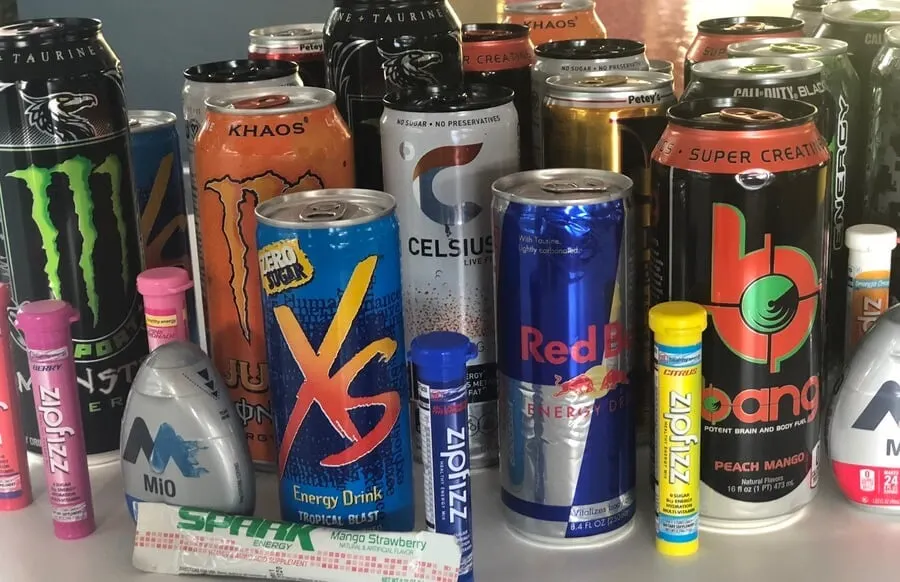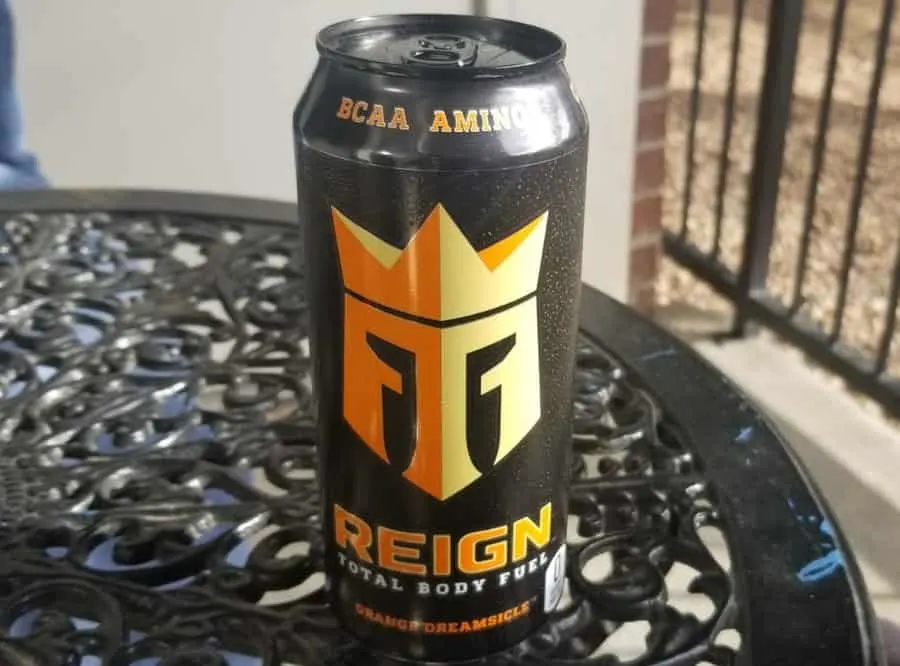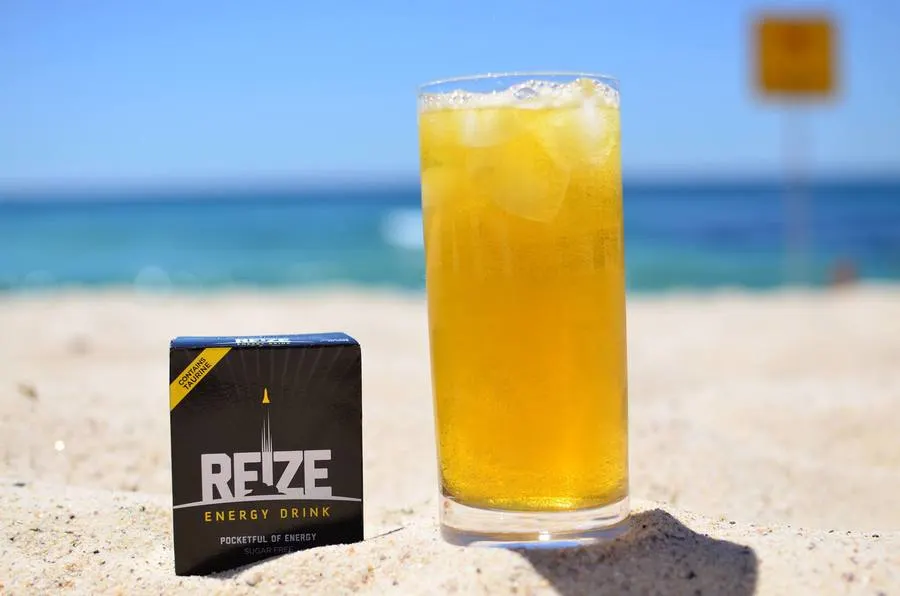Low-carb diets are popular for a few good reasons: they not only help in weight loss but also lower the risk of health issues like heart disease and diabetes.
Perhaps you’re considering going on a low-carb diet. Or maybe you’re already on one. Whichever it is, you’re likely to be very conscious of what you eat and drink.
And you’re probably wondering: if you’re cutting carbs how will you get the energy to function?
I’ll give you a quick answer: energy drinks like Celsius, Reign, and REIZE are ideal for low-carb diets!
Energy drinks are great substitutes for sugary and high-carb beverages, but only if they’re sugar-free.
Energy drinks can supply you with an energy boost and extra nutrients to ease your fatigue and increase your energy levels when you’re on a low-carb diet.
Keep reading to find out how energy drinks can help your low-carb diet, and what to look for when searching for the right energy drink.
Let’s get into it…
Where Can You Get Energy On A Low-Carb Diet?
Energy drinks are a great way to get energy when you’re on a low-carb diet. If you need a quick boost when you’re feeling fatigued, energy drinks might be the answer. However, make sure the energy drinks you’re drinking are sugar-free.
Sugar-free energy drinks usually use artificial or natural sweeteners to replace sugar, so the drinks still taste good.
These sweeteners don’t contain calories, which means zero carbs too, and combined with caffeine, they can help keep you alert and awake.
Caffeine is the main energy-boosting ingredient in energy drinks.
Many studies have shown that caffeine has a lot of positive impacts on alertness whether it’s consumed in the day or at night. There’s also proof that caffeine can maintain psychomotor performance and vigilance during conditions of sleep deprivation.
Energy drinks can help minimize your symptoms of tiredness temporarily, sufficient to energize and increase your mental concentration.
But like most food and drinks, energy drinks need to be consumed in moderation. As beneficial as caffeine can be, it can ultimately become an enemy if you don’t control your consumption.
How To Choose Energy Drinks For Low-Carb Diets?

Caffeine
Caffeine is able to increase your metabolic rate through a process known as thermogenesis. This means that you burn more calories at rest when you consume caffeine.
How is this related to energy and low-carb diets?
It’s simple: Caffeine is not only OK when you’re on a low-carb diet, but it also has the potential to be beneficial when you’re in need of energy.
When you’re on a low-carb diet, among the common symptoms you’ll feel in the first few weeks when you’re just starting out are fatigue, headaches, and muscle cramps.
This happens when you’re used to getting most of your energy from carbs.
Since carbs are your source of energy, you’ll feel worn out, lethargic, and lack the motivation to do anything.
Energy drinks are a great way to gain more energy and decrease your tiredness during this temporary period.
Coffee and tea (without sugar) are examples of other beverages you can drink if you’re looking to cut back on your carb intake.
Like coffee and tea, energy drinks contain caffeine, sometimes even more than your regular cup of Joe depending on the brand. However, you must remember that more doesn’t always mean better.
The caffeine that energy drinks have can supply your body with a boost of energy that’ll keep you going throughout your day.
Choosing energy drinks with the right caffeine content goes hand-in-hand with your caffeine tolerance.
If you regularly consume caffeine, you can go for stronger energy drinks. On the other hand, if you’re sensitive to the effects of caffeine, it’s better to consume energy drinks with low to moderate amounts of caffeine.
Personally, I usually go for 50mg – 100mg of caffeine per serving. That much is just right for the positive effects of caffeine to set in and help me get through my tasks for the day without the negative side effects.
Any more than 100mg usually causes a considerable dip in my energy levels and sometimes I’ll even experience headaches and feel flushed.
The FDA has suggested that adults can have up to 400mg of caffeine in a day without getting adverse effects. Take note that the amount stated includes all caffeinated sources – from food, drinks, and even medication.
Though some people can consume more than advised without issue, it’s an unhealthy practice and can eventually lead to health risks like:
- Dizziness
- Diarrhea
- Headache
- Fever
- Vomiting
- Irregular heartbeat
- Confusion
The best way around this is to choose your energy drinks with the caffeine content that suits your tolerance.
Sugar Content
Adhering to a low-carb diet means you’ll have to abstain from sugar. Sugar is broken down into carbs (glucose) during the process of metabolism.
Many energy drinks have high sugar content, but nowadays there are sugar-free options for those who can’t have sugar or are cutting down on it.
This is common sense in a way as sugar isn’t healthy for you whether or not you’re on a low-carb diet.
Price
Eating healthy can be expensive. So there’s no reason to spend more than you need to in order to get your boost of energy.
If you’re going to practice this diet for a period of time, you should get some great deals while you’re on it.
There are some expensive energy drinks out there but a pricier drink doesn’t mean it comes with the benefits that you want. There are other affordable energy drinks that are just as effective.
In my opinion, you should choose an affordable energy drink that’s sugar-free with reasonable caffeine content.
One such energy drink that ticks all the boxes is REIZE, a powdered energy drink but I’ll tell you more about it later.
Can Energy Drinks Help In Workouts When On A Low Carb Diet?
Energy drinks are used by many athletes to enhance their physical performance and it’s proven to work, so energy drinks are confirmed to help you in your workouts when you’re on a low-carb diet.
Here are some aspects of workouts that caffeine can improve:
Glycogen
When you’re doing any physical activity, your muscles use glycogen that’s metabolized in your body for energy. Glycogen usually comes from glucose, which is broken down from carbs.
That’s why after you’ve completed your workouts, you need to reload on your carbs before your muscles start eating away at themselves for fuel.
The ingestion of caffeine can spare your glycogen stores and instead direct your body to rely on the fats in your body for energy. Though, it can’t restore your performance to the level it was when you first began your workouts.
Consuming caffeine before exercise has been proven to increase power output by 3.5% when your glycogen stores are running out.
If you want to replenish your muscle glycogen stocks with caffeine, have a post-workout meal packed with protein, healthy fats, and vegetables together with a can of energy drink when you’re on a low-carb diet.
Muscle Building
The benefits of caffeine on strength exercises have remained inconclusive so far but then again this topic of research is pretty new and needs more time to arrive at a confirmed verdict.
The available studies on the advantages of caffeine consumption during strength exercises reported that it’s most effective when the activities involve large muscle groups, circuits, or repetitions.
One 2010 review discovered that caffeine enhanced leg muscle power by 7% as well as muscle endurance.
Another study in 2006 found that caffeine could improve upper body strength, therefore positively affecting bench press exercises.

Endurance
Many studies have found that caffeine is beneficial in endurance-based performance. It’s likely to have the most impact when consumed in moderate amounts before or during exercise.
A review from the Journal of Strength and Conditioning Research found that a moderate intake of caffeine could improve performance during endurance exercises. It was also stated that caffeine should be consumed at least one hour before or, if necessary, during exercise for optimal effect.
Hence, if you’re doing any endurance exercises like jogging or biking, you can have an energy drink before you start for an energy boost that’ll last you for several hours.
What drinks can I drink on a low-carb diet?
Aside from a few energy drinks, these are other drinks that you can have on a low-carb diet:
- water
- coconut water
- vegetable juice
- kombucha tea
- low-carb smoothie
- coffee
How can I get energy without carbs?
Here are other ways to get energy without consuming carbs:
- Drink more water.
- Eat more fiber.
- Avoid unprocessed food.
- Eat more healthy fats.
- Exercise more.
Does Caffeine Help In Weight Loss?
Caffeine can’t help in weight loss if you don’t exercise to burn your calories off. How it helps you in reducing weight by providing you with the energy to work out.
Consuming caffeine alone won’t help you in your weight loss journey. You need to put in extra effort for that.
Of course, that wouldn’t be a problem as caffeine is beneficial with regard to improving exercise performance. Plus, the ingestion of caffeine could increase fat-burning and metabolic rate, which contribute to calorie-burning effects.
But you shouldn’t depend on consuming caffeine to lose weight.
Having a balanced diet and a healthy lifestyle does a better job, and it doesn’t cause any long-term health problems.
Can Caffeine Suppress Appetite?
Caffeine can suppress appetite for a minimal amount of time. After caffeine is ingested, you’ll usually feel the effects of caffeine pretty quickly, and in the same way, the effects will diminish within a few hours.
A 2017 review found that caffeine consumption 30 minutes to 4 hours before meal times could decrease your energy intake, meaning you’ll consume less.
On the contrary, another study discovered that decaffeinated beverages were more effective in significantly reducing hunger levels. But the researcher who conducted the study admitted that the sample size was small and that the results aren’t concrete enough yet.
I wouldn’t recommend using caffeine as an appetite suppressant either; it’d be better if you just stick to a healthy diet instead.
There’s no harm in having caffeinated beverages while you’re dieting – just make sure you skip the sugar, cream, and extra calories.
Can You Have Sugar-Free Drinks On A Low-Carb Diet?
Sugar-free drinks are encouraged in a low-carb diet. Sugar-free energy drinks usually don’t have a lot of carbs and can contain very few to zero calories.
When you’re on a low-carb diet, it means you need to cut down on all carbs, including sugar. The majority of the foods and drinks you’ll be having when you’re on this particular diet are lean proteins, veggies, and unsweetened beverages.
Plus, they’re healthier and won’t cause any sugar crashes after.
Though, you should still drink sugar-free energy drinks in moderation. These energy drinks still contain caffeine and artificial sweeteners, which need to be consumed in limited amounts to avoid adverse effects.
The impacts of artificial sweeteners on our health aren’t thoroughly explored enough and can trigger responses in people who are more sensitive to them.
There are studies that found these sweeteners might affect gut health but have so far remained inconclusive.
Natural sweeteners like stevia have been recommended as healthier sugar alternatives. But like most modern chemicals, there aren’t many studies about their long-term effects on our health.
Best Energy Drinks For Low-Carb Diets
Now that you know that you can turn to energy drinks to refuel your body while on a low-carb diet, here are some suggestions for you to check out:
| Energy Drinks | Caffeine | Sugar | Calories | Price |
| Celsius | 200mg | 0g | 10 | $2 |
| Reign | 300mg | 0g | 0 | $2 |
| REIZE | 50mg | 0g | 11 | $1 |
Celsius Energy Drink
Celsius has 200mg of caffeine, an appropriate amount that’s within the FDA’s guideline of caffeine per serving.
The advantage of Celsius is that they’re sugar-free and don’t contain any preservatives, artificial colors, or flavors so they’re suitable for a low-carb diet.
Good news for vegans too, Celsius is a vegan-friendly energy drink.
Celsius energy drinks are available in 10 sparkling and non-sparkling flavors so there’s a wide selection of choices you can pick to suit your taste buds.
If you’d like to learn more about Celsius’ ingredients, feel free to check out this article I’ve previously written that covers everything in a lot of detail.
Reign Energy Drink

Reign energy drinks are sugar-free and calorie-free, so that’s definitely a bonus if you’re on a low-carb diet.
However, it does have a massive 300mg caffeine content per can, putting it together with other really strong energy drinks like Bang.
I’m sure after drinking Reign, you’ll be full of energy for at least half a day. And for the benefits it’d provide you, it’s probably reasonably priced.
Though, I wouldn’t recommend Reign to anyone with a low caffeine tolerance. If you can’t have too much caffeine, there are many other moderately caffeinated energy drinks to choose from out there.
Also, if you’re wondering if Reign has any impact on your health, you can read about it further in this article where I cover things in more detail.
REIZE Energy Drink

REIZE is the energy drink I count on for fuel when I’m avoiding carbs.
Aside from its sensible 50mg of caffeine, REIZE is sugar-free and has very few calories so it won’t drastically affect your daily calorie count.
REIZE is also convenient and easy to bring around anywhere as it comes in sachets and can be customized to suit your preference.
Plus, REIZE is versatile and can be mixed into almost any beverage you like including tea, water, and juice.
Another perk of REIZE is that it only costs around $1 per drink, including shipping to your door.
Talk about great value for money.
Give REIZE a try today and it might also become your go-to when you’re on a low-carb diet.
Related Articles:
- Best zero-calorie energy drinks
- Best energy drinks for a ketogenic diet
- Best energy drinks for burning fat

